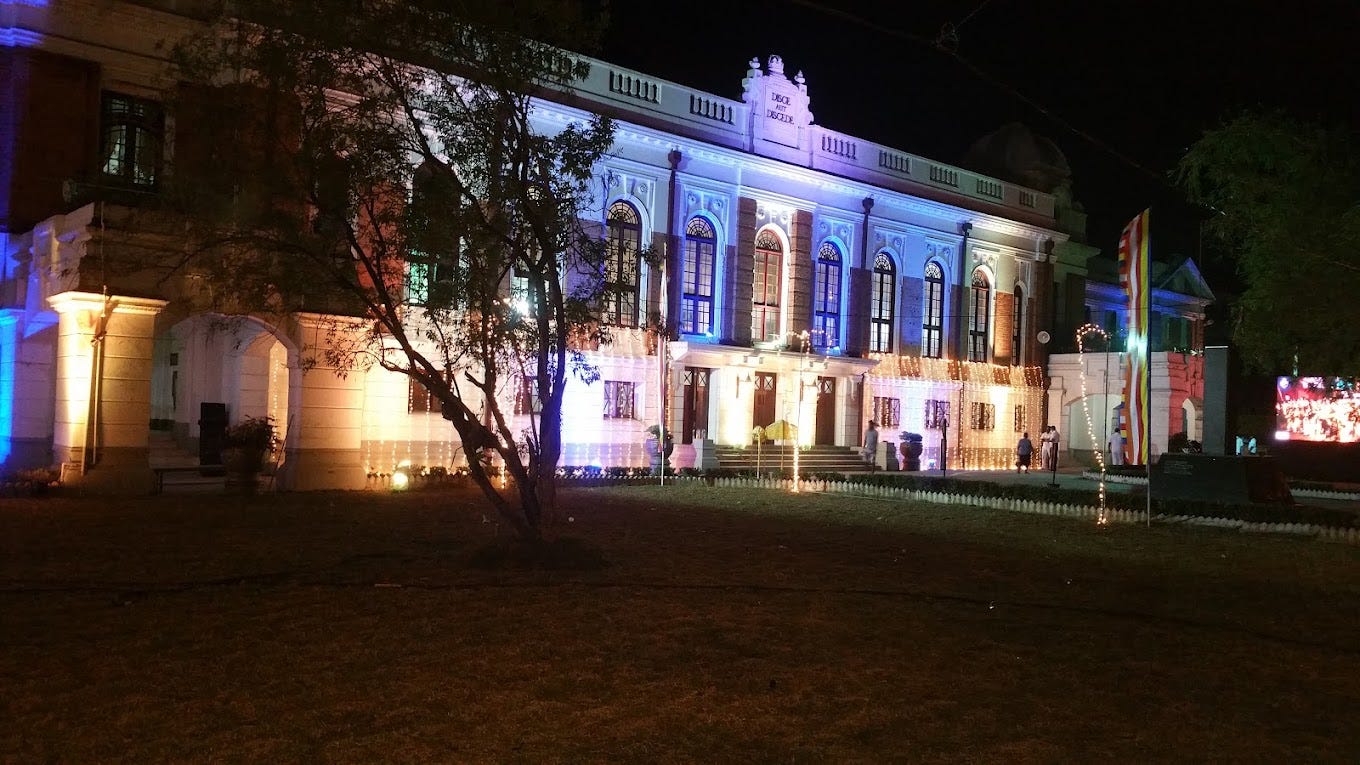
In the main hall of Royal College, under photographs of famous
alumni, there are ‘quotable quotes’ neatly etched on long wooden panels.
‘Learning alone is imperishable,’ is one I remember.
I
must have been around six or seven when I first read that line. My
brain gathered it as a recommendation for self-study, although it didn’t
register in those very words. It took some years for me to understand
that it was a line that privileged learning over everything else, at
least in the matter of perishability.
It took
several decades more for me to understand that the claim was time-bound.
We learn, we forget, we learn to forget and eventually it all gets
scrambled in infirmity and disappears with death. Learning, however, is
valuable, and even though value is subjective we could think of things
wholesome rather than things that are not.
Learning
can be of many kinds but that which arguably the most worthwhile is
that which can also be called wisdom. What is wisdom, though? The
ability to discern, one might say. The Buddha speaks of eight requisite
conditions which ‘lead to the acquiring of the as-yet-unacquired
discernment that is basic to the holy life, and to the increase,
plenitude, development, & culmination of that which has already been
acquired,’ in the Pañña Sutta or the Discourse on Discernment. The
qualifier is ‘holy life,’ but they are not entirely inapplicable or
irrelevant to life that is, say, secular. Let’s consider.
First,
the Buddha says, is apprenticeship, where one learns from or with,
respectively, a teacher or a fellow traveler with whom one has
established a strong sense of common purpose marked by respect. A
learning environment, then.
The second refers to
seeking. The student will approach the teacher and seek clarification
whereupon the teacher will ‘reveal what is hidden, make plain what is
obscure, and dispel perplexity.’
Third, the Buddha
says, is seclusion in mind and body. These are not easily obtained in
the rush of the diurnal, but neither are they forbidden nor impossible,
at least in time fragments even in the midst of duty, responsibility and
must-do.
Virtuous, one should be, so the Buddha advocates. It is recommended that the student ‘dwells retrained in accordance with the patimokkha, consummate in behaviour and sphere of activity.’ Now patimokkha
is a foundational code of monastic discipline comprising a set of rules
for monks and nuns. Cannot a lay person, then, adhere to them? Probably
not in the strictest terms. On the other hand, such behaviour and
relevant spheres of activity can be aspired to, rehearsed and acquired
at least in part.
Retention is the fifth: it is
recommended that the student listens to often, retains, discusses,
accumulates, examine with mind and penetrate in terms of views,
‘whatever teachings are admirable in the beginning, admirable in the
middle, admirable in the end, that — in their meaning and expression —
proclaim the holy life that is entirely complete and pure.
Next
is persistence. The student is steadfast, solid in effort, and devoted
to acquiring and maintaining wholesome mental qualities.
The
seventh alludes to choice in the matter of conducting oneself when
among the Sangha : the Buddha recommends that the student exercises
circumspection, taking care not to speak of anything and everything but
focus instead on the subject of the Dhamma.
What is the eighth? Focus. The student is asked to ‘focus on arising and passing away with regard to the five aggregates; form (rupa), feeling (vedana), perception (sanna), mental formations (sankhara), and consciousness (vinnana).’
Where
such conditions are met or strived for, one is in a truly learning
situation, ready to acquaint oneself with the eternal verities. Wisdom,
in a word.
Is it perishable or not? As mentioned,
time takes away that which is acquired, knowledge and wisdom included.
Things arise, they’d decay and they perish. What is imperishable until
enlightenment is achieved, though, is karma; it follows just as the
wheels of a cart follow the footsteps of the ox pulling the cart. Or so,
Buddhists believe.
We could shelve karma for the moment. We could talk of ‘this side of the inevitable decay of body and mind’ The Pañña Sutta is certainly applicable even in that region. It is worth reflecting on if learning, imperishable or otherwise, is valued.
[This article was published in the Daily News under the weekly column title 'The Recurrent Thursday']
No comments:
Post a Comment